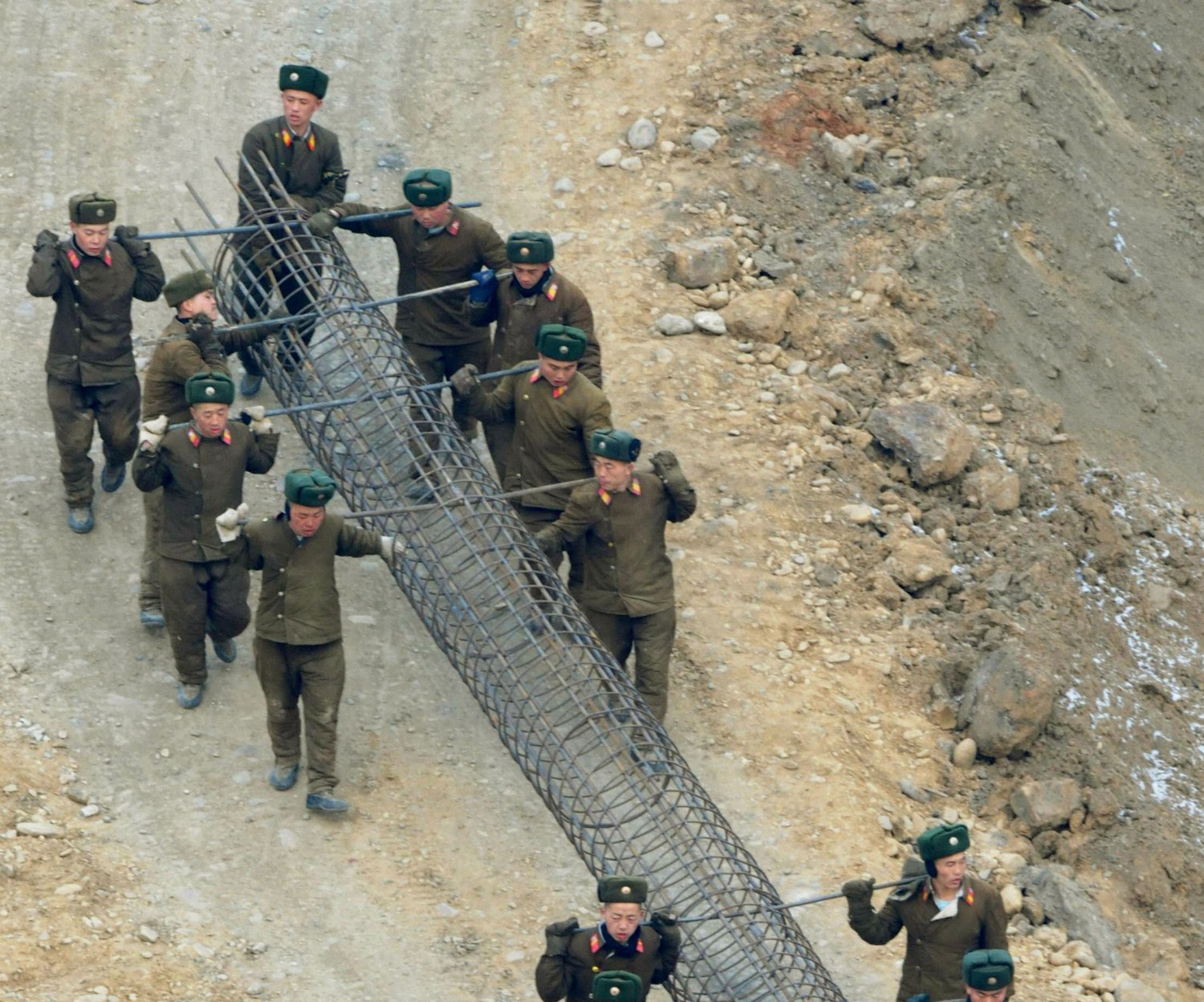North Korean soldiers who were sent to rugged rural areas to build homes in the summer and fall are staying on to do more work in the winter, but the army is not equipping them with adequate clothing to brave the harsh winter elements, residents in the country told Radio Free Asia.
The North Korean military maintains units of construction workers that it calls “stormtroopers,” and it uses them for free labor on state projects. When they arrived to start work in the far northern province of Ryanggang, near the border with China, it was still summer, and they were dressed for the heat.
But now that temperatures are plunging well below freezing, the stormtroopers are scrambling to find any warm clothing they can, they have earned the nickname “Kotjebi unit,” residents said, a reference to the homeless children who beg on the streets of many North Korean cities.
The military in the area is giving the soldiers whatever they have to spare, a resident of the province told RFA Korean on condition of anonymity for security reasons.
“On Oct. 20, the clothes that border guards had worn and discarded last winter were distributed to the stormtroopers,” he said. “They say it is discarded underwear and cotton clothing, but in reality, it’s nothing more than rags.”
The stormtroopers were brought together and ordered to go to Ryanggang in July this year, the resident said.
“Initially, the stormtroopers were scheduled to build houses in the rural areas of Ryanggang Province by the fall of this year and withdraw around mid-October,” he said. “They did not even dream of preparing for winter.”
The stormtroopers completed their assignment in September, and there was a large move-in event as rural residents entered their new homes on Oct. 5, the resident said.
“However, after the construction job [was completed], the withdrawal date was postponed to the end of this year as new rural road maintenance projects, communal livestock projects and reforestation projects were proposed,” he said.
Though they arrived in summer clothes, the military has only so far provided them with work shoes and used winter cotton clothes used by local soldiers, the resident said.
“With that level of supply, it will be difficult to survive until the end of December when their withdrawal is scheduled,” he said.
‘Struggle for survival’
Temperatures in Ryanggang have fallen to around minus 15 degrees Celsius (5 degrees Fahrenheit), another resident of the province told RFA on condition of anonymity to speak freely.
“The stormtroopers who were mobilized to build rural homes are not working according to a set plan but are engaged in a fierce struggle for survival in the cold,” the second resident said.
He said that in addition to the lack of winter clothing, the stormtroopers are also not receiving adequate food.
“The meal that these stormtroopers eat is a mixture of 60% potatoes and 40% corn kernels,” he said. “The soup is salt water with salted cabbage loosely floating in it, and the side dishes are salted cabbage and salted radish.”
The soldiers are being housed not in barracks, but in empty offices and daycare centers, the second resident said.
“The stormtroopers, who must work hard without much rest, are unable to even bathe or do laundry due to the constant shortage of firewood,” he said. “Rural residents say that the living conditions of the stormtroopers are worse than those of prisoners in disciplinary labor camps.”
Survivors of the camps have described horrific conditions while incarcerated in such camps.
Though the situation of the stormtroopers is likely nowhere near as bad, that the comparison is being made suggests a deployment many of the soldiers will want to end sooner rather than later.
“The stormtroopers are looking forward to the day when they will finish the rural housing construction project in mid-December and return home,” the second resident said.
“They will return home and rest from the end of December to mid-January of the following year, and then they will return to the rural areas of Ryanggang Province from January 20th to take on next year’s construction tasks.”
Translated by Claire Shinyoung Oh Lee. Edited by Eugene Whong.

